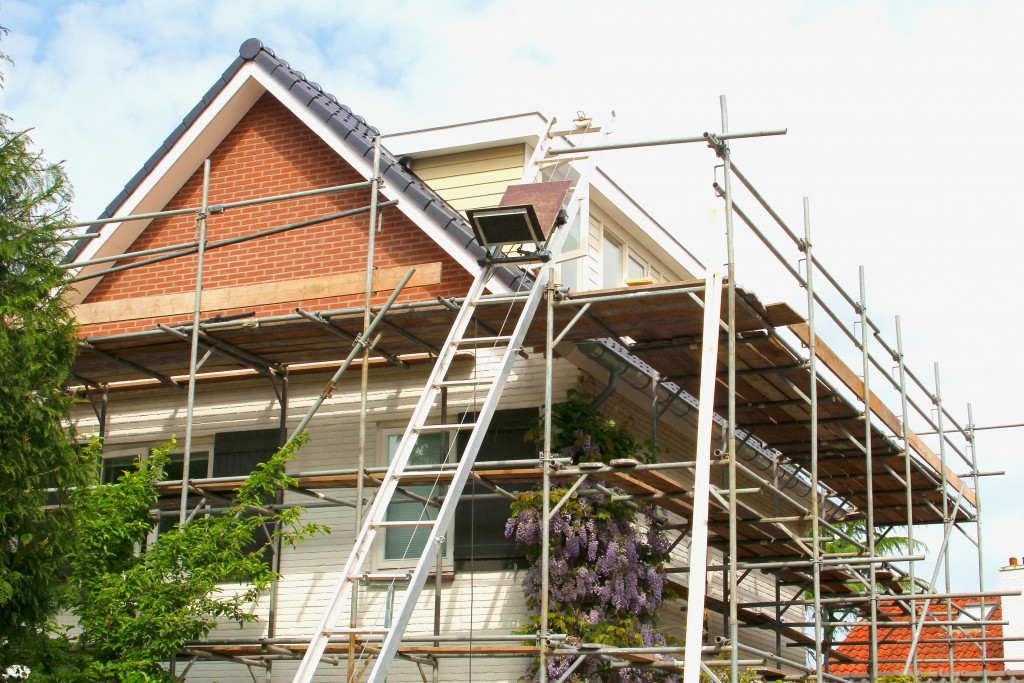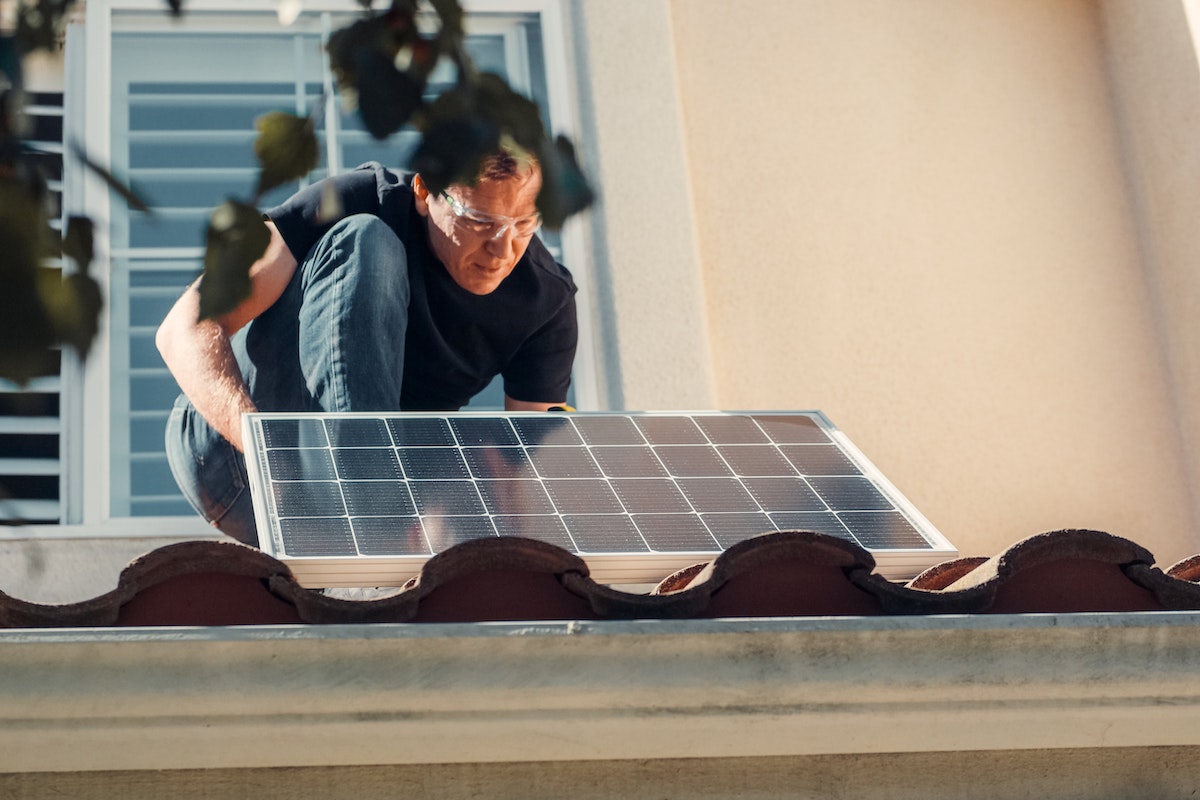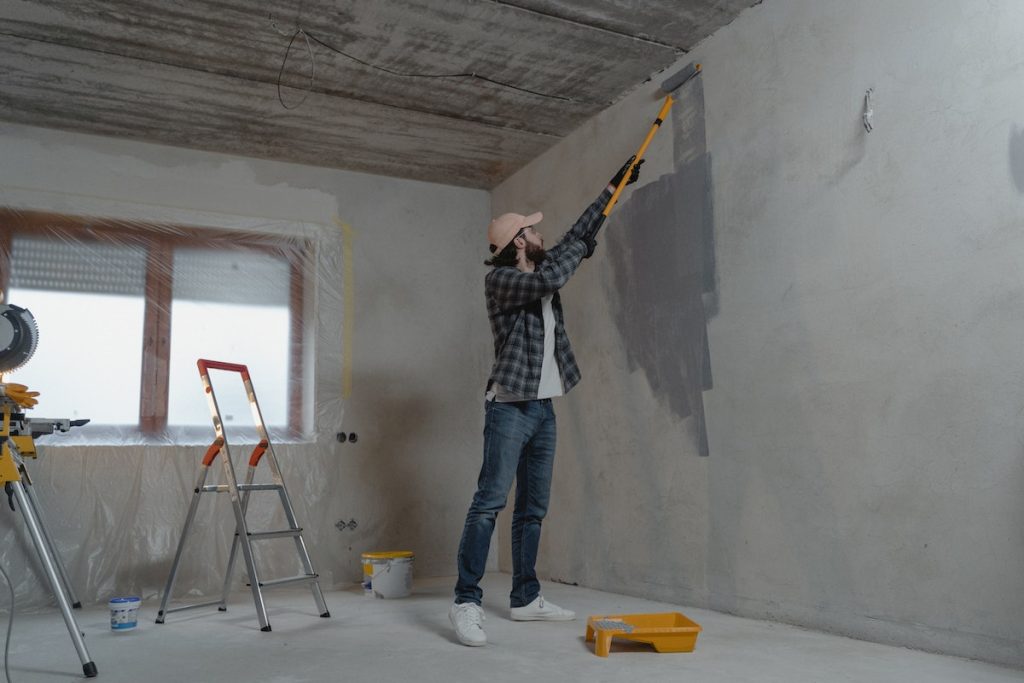- Renovations can save money on energy bills and reduce carbon footprint.
- Choose durable, insulating, and sustainable materials for renovations.
- Utilize insulation and weatherproofing for a more energy-efficient home.
- Consider sustainable heating solutions such as geothermal heat pumps or biomass boilers.
- Incorporate solar solutions to generate electricity and reduce reliance on traditional energy sources.
Your home is your sanctuary, and making it as energy-efficient as possible can benefit your wallet and the environment. Energy-efficient renovations can save you money on your energy bills and reduce your carbon footprint. In this article, you will learn about five energy-efficient renovations for your home that can make a big difference in your energy usage and help you to live a more sustainable lifestyle.
1. Choose the Right Materials
Choosing the right materials for your renovation project is one of the most effective ways to make your home more energy-efficient. Durable, insulating, and eco-friendly materials can help reduce your energy consumption and make your home more comfortable.
Choose materials that are locally sourced, recycled, or made from sustainable materials. For instance, bamboo is a fast-growing, sustainable material that can be used for flooring and cabinetry. Furthermore, recycled glass countertops and backsplashes significantly reduce waste while adding a unique touch to your kitchen or bathroom.
When renovating your home, it is also essential to choose materials that are durable and long-lasting. Quality materials will save you money in the long run and reduce your carbon footprint. Natural stone, ceramic tiles, and hardwood floors are all durable materials that will stand the test of time and require little maintenance.
2. Utilize Insulation and Weatherproofing

Another way to make your home more energy-efficient is by utilizing insulation and weatherproofing. A properly insulated home can help reduce energy bills and make your home more comfortable.
The first step to effective insulation is identifying areas in your home that need it the most. Common areas for heat loss include walls, attics, and basements. You can then install insulation in these areas to improve your home’s energy efficiency.
Weatherproofing is also essential to keep your home warm in the winter and cool in the summer. Common weatherproofing solutions include weatherstripping and caulking around windows and doors to prevent drafts. You can also install storm windows and doors to improve insulation.
3. Consider Sustainable Heating Solutions
Heating your home is a major source of energy consumption. Therefore, choosing a sustainable heating solution can significantly impact your energy usage and carbon footprint. There are a variety of heating options available, but some are more eco-friendly than others.
Here are some sustainable heating solutions to choose from:
Geothermal Heating Systems
Geothermal heating systems are an efficient and eco-friendly way to heat your home. Using the earth’s constant temperature, geothermal systems can provide reliable and cost-effective heating without increasing your carbon footprint. A geothermal system requires piping laid beneath the ground, so it’s important to ensure you have sufficient space for installation before investing in this type of system.
Air Source Heat Pumps
Air source heat pumps are another efficient and eco-friendly way to heat your home. By transferring thermal energy from the air outside, these systems provide an effective and affordable way to reduce your energy bills without relying on traditional heating methods. Furthermore, air source heat pump installation does not require excavation or major renovation work, which can be a huge benefit if you want to keep costs down.
High-Efficiency Furnaces
High-efficiency furnaces use advanced technology to reduce energy consumption compared to traditional models. These furnaces turn fuel into heat more efficiently and require less fuel, resulting in lower costs and fewer emissions. If you prefer traditional heating methods, a high-efficiency furnace is the best choice for eco-friendly heating.
Biomass Boilers
Biomass boilers are an excellent option for reducing their reliance on fossil fuels. These systems use wood, pellets, or other organic materials to generate heat, resulting in fewer carbon emissions and lower energy bills. Biomass boilers require regular maintenance and may not be suitable for all homes, so it’s essential to research your options before investing in one.
4. Incorporate Solar Solutions

Incorporating solar solutions into your home renovation can significantly impact your energy usage and carbon footprint. Solar panels can generate electricity for your home, reducing reliance on traditional energy sources.
Several solar solutions are available, including solar water heaters, solar pool heaters, and photovoltaic (PV) solar panels. PV panels can be installed on your roof or in your yard to generate electricity for your home.
Solar solutions can be a significant investment, but they will pay for themselves over time. Additionally, many states and cities offer tax credits and incentives for homeowners who install solar panels.
5. Plan a Sustainable Landscape Design
A sustainable landscape design can not only enhance the beauty of your home but also reduce your energy usage. By incorporating native plants, natural drainage solutions, and other eco-friendly landscaping practices, you can make your home more energy-efficient and reduce your carbon footprint.
Consider using drought-resistant plants that require little watering when planning your landscape design. Install a rainwater harvesting system to capture and reuse rainwater that would otherwise be lost. Moreover, consider incorporating native plants into your landscape design, as they require less watering and can help support local wildlife.
Final Words
These tips can make your home more energy-efficient and reduce your carbon footprint. Renovations that are both eco-friendly and cost-effective will help save you money in the long run while also making your home more comfortable and sustainable. With the right materials, insulation, heating solutions, solar solutions, and landscape design, you can create a greener and healthier environment for yourself and future generations. So start today on creating an energy-efficient home!


